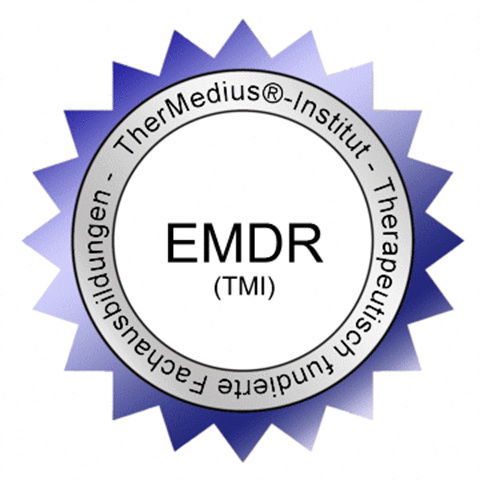“In order to see clearly, it is often sufficient to change the direction of vision.” (Antoine de Saint-Exupery)
EMDR
Treatment of anxiety, phobias and trauma through guided eye movements
What exactly is EMDR?
EMDR is an effective psychotherapy method that has its roots in the field of psycho-trauma therapy. Meanwhile the method is not limited to trauma therapy; the range of applications of EMDR goes far beyond that. EMDR is based on the fact that every human being has a natural ability to process information, by which he or she can deal with stressful experiences.
The central element of EMDR therapy are guided eye movements - also called bilateral stimulation: The client follows the therapist’s fingers with the eyes while she moves her hand alternately to the right and left. The client’s eye movements are comparable to the eye movements in REM sleep - the phase of sleep in which the events of the day are processed. As an alternative to hand movements, the therapist can use sounds or touch the backs of the patient’s hands.
Everything that a person experiences as dangerous and threatening to identity can cause a mental trauma and cause corresponding reactions.
An EMDR session is comparable to a train journey: The clients drive past the event once again - but from a safe distance and accompanied by their therapist. In the further course of the session, the burdening memory fades bit by bit and the symptoms of the experience are gradually resolved. The clients learn to deal with the old traumatic memories and thoughts and can develop a new, more appropriate perspective on the event.
The advantage of EMDR over other methods is the efficiency and sustainability of the treatment. Even in the first session, a significant alleviation of symptoms can usually be felt. Depending on the intensity of the symptoms, several treatments are advisable.
Areas of application
What problems and disorders can be treated with EMDR?
- Effects of stressful life experiences
- Strong grief after loss experiences
- Acute crises
- Depressions
- Anxiety states and panic disorders, e.g. fear of flying, exams, animals, school fear
- Burnout
- Stress and excessive demands
- Failure/examination fears
- Difficulties in orientation, motivation and decision-making
- Self-esteem problems
EMDR is a very effective method to relieve symptoms and alleviate a variety of conditions in a relatively short time. EMDR therapy is often embedded in other psychotherapeutic procedures.

